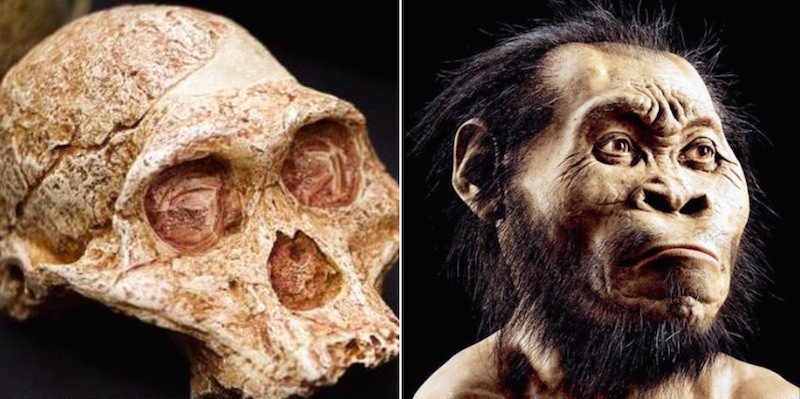We have new relatives.
Scientists unearthed a new species of human ancestor in a cave in South Africa, The New York Times reports.
This new species was dubbed “Homo naledi.” The designation comes from the cave’s name, Rising Star, as “naledi” means “star” in the local Sesotho language.
The remarkable finding offers researchers a deeper glimpse into the origins of humankind.
Two years ago, spelunkers discovered a crack in Rising Star cave where they believed they saw a large number of bones, leading the scientists to investigate.
What the scientists found astounded them: around 1,550 fossil elements. It appears this new human ancestor deliberately buried its dead, a trait scientists previously believed was unique to modern humans.
Speaking with Slate, American paleoanthropologist Lee R. Berger, who led the team of more than 60 scientists behind this groundbreaking discovery, stated,
The fact is, it almost certainly would have been risky to get to this chamber. So [Homo naledi] are not only secreting these bodies away to an area where nothing could get to them, they were taking risks in doing that. Only humans do that. Until this moment, we’ve never seen another form doing that, and we’d have never thought of something small-brained and primitive doing that.
As CNN notes, the human ancestor may have also had the ability to use tools, indicated by the shape of its finger bones.
A new species of human ancestor is found in South African cave http://t.co/XCqGpMNJX0 pic.twitter.com/o1YqOLfKy0
— The New York Times (@nytimes) September 10, 2015
Homo naledi would reportedly be about 5 feet tall and close to 100 pounds, with a brain roughly the size of an orange.
Cool. Even #HomoNaledi could grow a better beard than me. pic.twitter.com/EZ1TNEfKM0
— Jason Gore (@sonicdork) September 10, 2015
It’s not yet known how old the H. naledi fossils are, but evidence suggests they could be more than 2.5 to 2.8 million years old.
Welcome to the family, Homo naledi! Your brain might be tiny, but we still love you.






